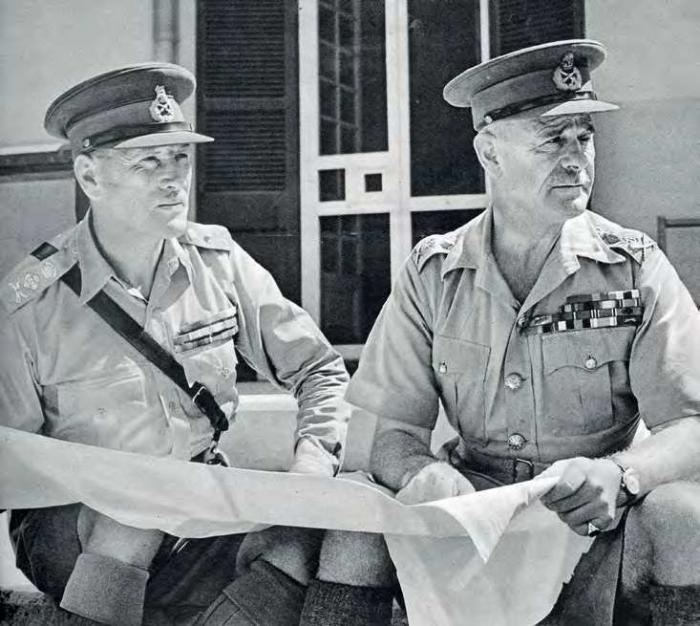Eighty years ago this week, Churchill clears the decks in India

Churchill rejigged army high command responsibilities in India. He moved Wavell from the job of C-in-C to become the Viceroy in succession to Lord Linlithgow. Given Churchill's determination to preserve the raj, it is unlikely that he wanted Wavell to improve on Linlithgow's lacklustre showing in persuading Indian leaders to support the war effort actively. Churchill had never liked Wavell and the move took him even further from active military command. He was replaced as C-in-C by Auchinleck who had been unoccupied since being sacked from the Middle East six months before and refusing command in Persia. Auchinleck had never drawn Churchill's contempt in the same way as Wavell but his days as a fighting commmander were numbered. The job was merely administrative and organizational; control of the battle against Japan was reserved for other commanders and they were to be men more to Churchill's taste.
George VI left Britain for the first time during the war to visit allied forces in North Africa and then Malta in recognition of its heroic resistance. The journey was well received but it proved another nail in the coffin of the King's widely despised private secretary, Sir Alexander Hardinge, who initially made the ludicrous proposal that the King should see only British units and ignore the large presence of US units in the theatre.
The Labour party conference demonstrated how weak were the party's leaders in their own organisation compared to the leaders of the Conservative party. Herbert Morrison, arguably the second most important Labour figure in the government, lost his seat on the execuive and failed to be elected as Treasurer; the conference preferred the failing but amiable drunkard Arthur Greenwood. The conference firmly rejected affiliation by the Communist Party but there was still a strong body of support for what would have been a fateful shift into Stalin's orbit.
General de Gaulle's respresentative in occupied France, Jean Moulin, was arrested by the Gestapo in Lyons. Moulin had been on a mission to impose de Gaulle's control over the various factions of the resistance. Within days he died under torture.


Comments
Post a Comment